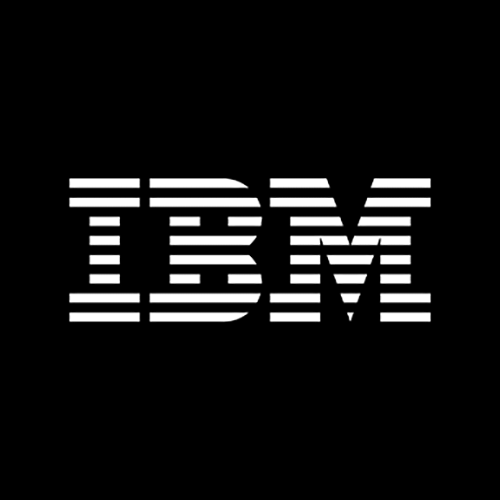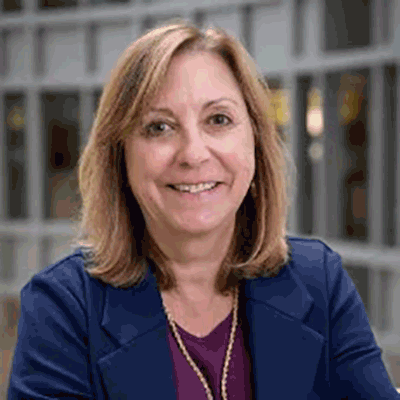Deloitte: Businesses That "Sit on the Sidelines" While Others Pilot Blockchain Will Be Left Behind
Wendy Henry is the Global Practice Lead for Deloitte's Digital Assets and Cryptocurrency Consultancy; one of the firm's four business units dedicated to helping its business clients get the most out of distributed ledger technologies (DLT) including blockchain. Among her many very well-informed opinions about blockchain adoption is her advice to enterprises not to sit idly by while other entities—existing competitors, disruptive startups, regulators, and lawmakers—sort out their positions on blockchain.
While at DC Blockchain Summit 2023 in Washington, DC, Blockchain Journal editor-in-chief David Berlind interviewed Ms. Henry to learn more about what she's seeing in the way of blockchain adoption as well as obstacles to that adoption (including blockchain regulation; the main theme of the DC event). During the interview, Henry covered a wide range of topics, including enterprise use cases for both fungible and non-fungible tokens and the fact that many enterprises are still not yet 100 percent comfortable with the impact of decentralization on their boundaries for where "control" typically begins and ends.
However, the best advice that Henry offered had to do with the holistic view that enterprises must take when it comes to working with distributed ledger technology. For example, in use cases where multi-party data transparency is the main driver, an often overlooked imperative is to make sure that all of the involved parties and stakeholders are operating from the same levels of understanding and expertise. So, it's not just about an enterprise educating itself. It's about ensuring that its partners in any blockchain endeavor are equally skilled and fluent in the technology.
Said Henry, "The learning is in the doing. So you got to do. You can’t just sit on the sidelines and wait for everyone to figure this out. You’ll be left behind.”
(The full-text transcript appears below.)
Published:April 1, 2023

11 min read
Audio-Only Podcast


Full-text transcript of David Berlind's Interview Wendy Henry, Global Practice Lead, Deloitte's Digital Assets and Cryptocurrency Consultancy
David Berlind: Hi, I'm David Berlind with the Blockchain Journal Podcast. I'm here at the DC Blockchain Summit 2023 in Washington, DC, where lawmakers, regulators, lobbyists, all sorts of cryptocurrency enthusiasts are gathered to figure out where regulation is heading when it comes to Blockchain and cryptocurrency. Sitting with me is Wendy Henry. She is the lead of Deloitte’s digital practice when it comes to cryptocurrency and blockchain. You're on the consultancy side. I understand there's four separate practices that address cryptocurrency. I'm assuming... I heard that there's the advisory practice, the tax practice, the consulting practice, and I'm missing one. What's the fourth one?
Wendy Henry: The audit practice.
Berlind: The audit practice. I'm not ready to apply for a job yet, but I'll let you know when I am. Okay. I have already interviewed Rob Massey. Of course, he's the practice lead on tax at Deloitte. But consulting sounds to me like that's really about going out to enterprises and helping them get off the ground with whatever it is their blockchain strategy is. Is that right?
Henry: That would be correct. So, we do deal with digital assets as well, but it's a much broader sense of what we're doing with digital assets. Because we have the FinTech area, so a lot of banks and even cryptocurrency-native companies, where they're dealing with digital assets. But there's another whole facet to this. Which is that foundational technology to digital assets, right? Because crypto is just a use case.
Berlind: Well, let me stop you there. What's the difference between a digital asset and cryptocurrency? Probably have to get that figured out.
Henry: Cryptocurrency is one of the many digital assets. It is more your money type of an asset. But if you think of NFTs, they're a digital asset as well. They hold value. It's something that's digitized, or digital representation that has value to it, is a digital asset.
Berlind: I thought maybe you were referring to digital assets that weren't necessarily blockchain-based. NFTs, of course, are blockchain-based types of cryptocurrencies that are like e-money or transfer of value, store value. That's a fungible token. Are there others?
Henry: Tokens. Any fungible or non-fungible tokens are really what we're talking about when we talk about digital assets, and crypto is one of those.
Berlind: Okay. What are enterprises doing with either one, either fungible or non-fungible tokens?
Henry: Yeah. Well, you've seen the uptick in collectibles. That's one, with NFTs. Enterprises are engaging with customers in very different ways. They're using NFTs through the use of really... reinvented loyalty programs. Think of Stabucks, right?
Berlind: Odyssey. Their Odyssey program. There are plenty of companies, like Starbucks, looking to engage with NFTs. Go ahead.
Henry: But let's take a step back because there's digital assets. But the foundational technology, blockchain, allows for a lot of other use cases that bring forward efficiencies, operational efficiencies, and ways of engaging in market dynamics in a very different way. If you think about supply chain, which is often cited as one of the good use cases for the technology. Today there's a lot of latency, a lot of paper transactions that occur in a[n] end-to-end supply chain transaction. But you can put that on the Blockchain. Everybody gets near real-time access to the same data, and everybody trusts that data. It's not quite —
Berlind: So long as it's decentralized, right? Because, if you think about what happened with IBM and Maersk and all that, that was a meltdown because of Governance. Maersk was trying to control the whole ecosystem. Nobody else wanted to be a part of that. If you put that on a public chain in a decentralized fashion, then there might be more willingness for some ecosystem and all the players in it to accept it.
Henry: The centralization is an issue. I will not say that isn't. I think, where we're having trouble with these ecosystems. Maersk was a technological success. It was a scaling failure. Part of that comes down to what you're talking about. What is the structure of that ecosystem that allows those parties to trust one another at a level that they need to engage in that transaction? But also for others to join. Because you need this to grow and scale. That whole Governance structure has a lot of components to it. We work with our clients often to try and understand the complexities there. Because you got to think about the governance. How are you going to onboard, how are you going to offboard, who gets to make the rules? But then, who's paying for the day-to-day operations? What regulations? Blockchain does it know geographical boundaries. What regs are you looking at? How are you making sure everybody is abiding by those? What kind of talent do you have to have within each of the organizations to make sure everybody's operating at the same level?
There's a lot of different components that have to come together when enterprises look at engaging. Now, public chains do eliminate a lot of the need for that kind of a dynamic being set aside completely. But we're not seeing total trust by enterprises in going to the public change just yet. We've got to get to that equilibrium of how do we make it easy and have the right structure so that there's enough decentralization at the enterprise level while making sure that it is still decentralized and that everybody's need for the outcomes they want, and the value they need to receive, is being recognized.
Berlind: Okay. I want to talk about obstacles. You just hinted at the fact that enterprises have some level of discomfort with working with a public chain. We're here at DC Blockchain Summit, and what's clear, is every year that they have this, their regulation is moving at a rather glacial pace. Enterprises tend to run free when there's no regulation. But as soon as there is [a] hint of regulation coming, then it's a full stop. Because you have the general counsel's office, and the CFO's office, and everybody's saying, "Okay. We need to see where this ends before we continue to work with this technology."
But they're in a catch-22. Because if they wait too long, some disruptive startup is going to come along and take them out the way Amazon figured out the newer technologies back in the day and took out a bunch of retailers. I would like for you to speak maybe to both of those things. One is, what was the obstacle you were talking about when you said, "They're not ready to work with public chains." Does it have to do with regulation or is there something else there? Then, since we're here at the DC Blockchain Summit, how do you help your clients through that regulatory obstacle?
Henry: Yeah. I think from the public blockchain, it's a little bit different than [a] lack of regulation that's keeping them from that. It's understanding and needing to be able to guide where the control begins and ends, and that's just not something they're comfortable with just yet.
On how to guide our clients. I think what we have said is you can't wait. You need to be looking at this technology, and you need to be able to figure out where it fits within your day-to-day fabric and the fabric of the types of market dynamics you engage with on a day-to-day basis. But we always say, "Think big. Start small. Start on the fringe, and iterate often as you're trying to learn it." It's a learning journey. The other thing we say is where it comes up against regulations. So, if there's going to be digital assets involved, there's going to be NFTs, something along those lines, right?
Or you want to start accepting crypto for payments, which a lot of organizations are starting to look at. What you've got to do is you've got to use what you have today, from a regulatory standpoint, and you've got to document the heck out of what it is you're doing and why you did what you did based on what was in place now. You can't wait for regs to come. As you said, we've been hoping they would come along. While there's great hope and it looks like momentum. This has been wonderful today because, there seems like there is a lot of motion. But you got to go, right?
Berlind: Yeah. Well, Uber is a good example. They went out, and a lot of things broke when they got going, including existing taxi-hailing and other limousine services. It all broke, then all of a sudden, the regulatory people reacted to that. At some point, they met in the middle. Although maybe not all of it's completely resolved. A lot of it is. Is what you're suggesting is [to] keep an eye on things but move forward?
Henry: Yeah. The learning's in the doing, so you got to do. You can't just sit on the sidelines and wait for everybody to figure this out. You'll be left behind.
Berlind: I hear you talk very fluently about the technology. You're talking with me, and I get everything you're saying. We're having a conversation. We're using language that most people are not familiar with. You probably encounter enterprises that [they] themselves are not familiar [with]. They're not familiar with the vernacular either. You mentioned education. So, is part of what you do in the consulting wing of Deloitte, spend a lot of time educating the enterprises on everything they need to know before they start that little project we're talking about?
Henry: Yeah. We do spend a lot of time with our clients making sure they understand the ins and outs. But all four of the functions do. Tax spends a lot of time with their clients, as does audit and assurance, and advisory.
Berlind: What's the traction now? I mean, if you had to characterize how things are going. It's surprising me that a company like Deloitte has four separate practices just for digital assets and cryptocurrency. That's a pretty big investment. There must be some traction there. There must be a fair number of enterprises that are in stealth mode because we don't hear a lot about enterprise adoption out there in the public space.
Henry: Well, if you think about what blockchain solutions are, what is the blockchain's characteristic problem that you're trying to solve? We talked about this consortium, this ecosystem, and we've talked about digital assets. It's not just technology. So, what's differentiated about Deloitte – I'm going to put a shameless plug in here, is that we can bring the tax people to the table. We can bring — what do your accounting controls need to look like? What do you need to do to make sure you're going to be ready for an audit? What kind of cyber do you need? What kind of risk controls do you need? Then we can bring all the strategy and education and all that stuff all at once. You don't have to go out as a client and figure out that you need these things. We're coming to you and saying, "This is a little bit of a unique problem in that there's technology, but this is a whole business problem." You've got to be ready for what the market's going to give you. You also have to be ready for what regulators are going to expect, and what your shareholders are going to expect.
Berlind: Sometimes, digital transformation is the big idea with new technology. [It] presents a new way to do things more efficiently. Maybe optimize for cost, maybe take some analog process that has been analog for years and inefficient, [and] turn it into a digital process. Aside from supply chain, because you mentioned that, what are some of the other — and customer engagement? You mentioned that one when we talked about Starbucks. Are you seeing any other big buckets of activity when it comes to enterprises getting involved with blockchain?
Henry: Yeah. There's a lot of use cases out there. Secure data exchange is a big one. The confluence of AI, IoT, and Blockchain as the trust anchor there. We're starting to see usage there. There are so many use cases. But most of them are predicated on, "How do I securely exchange data?" If there's a need to exchange data between disparate parties, you should be having a blockchain conversation.
Berlind: Is cryptocurrency volatility one of the obstacles? Does the CFO get worried about that?
Henry: I won't tell you that's not an issue.
Berlind: It seems like that's a big one. Because, if to engage a chain, even if just to pay the fees of a chain, if you have to hold some amount of cryptocurrency on any sort of periodic basis, there's a chance that that cryptocurrency is going to lose its value — or maybe it'll go up.
Henry: Which is why many use the permission blockchain. Because you're not paying fees.
Berlind: Right. Okay. Well, so Wendy Henry, thank you very much. We've been speaking with Wendy Henry, who is the lead of the digital assets and cryptocurrency consulting practice at Deloitte. Have a great rest of the event.
Henry: Thank you. Thank you so much. You enjoy the event, too.
Berlind: Thank you.














